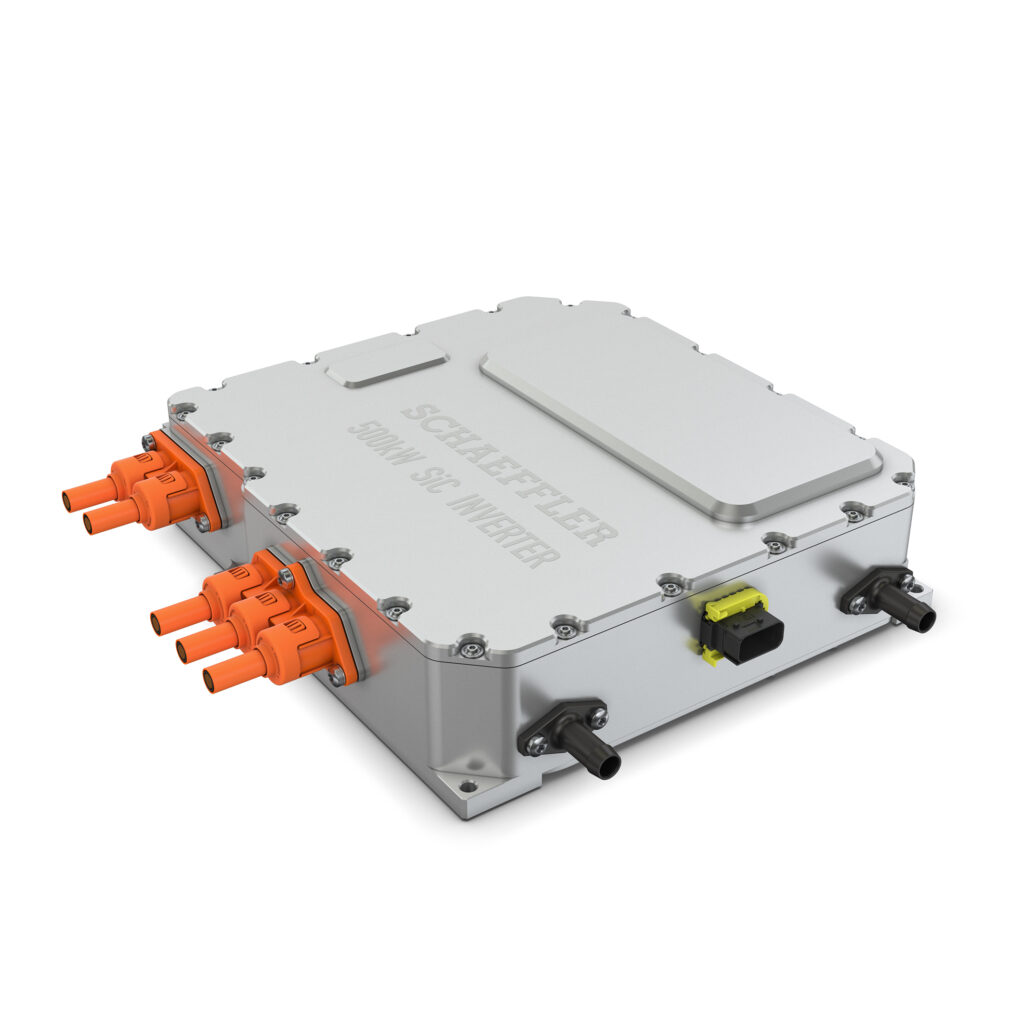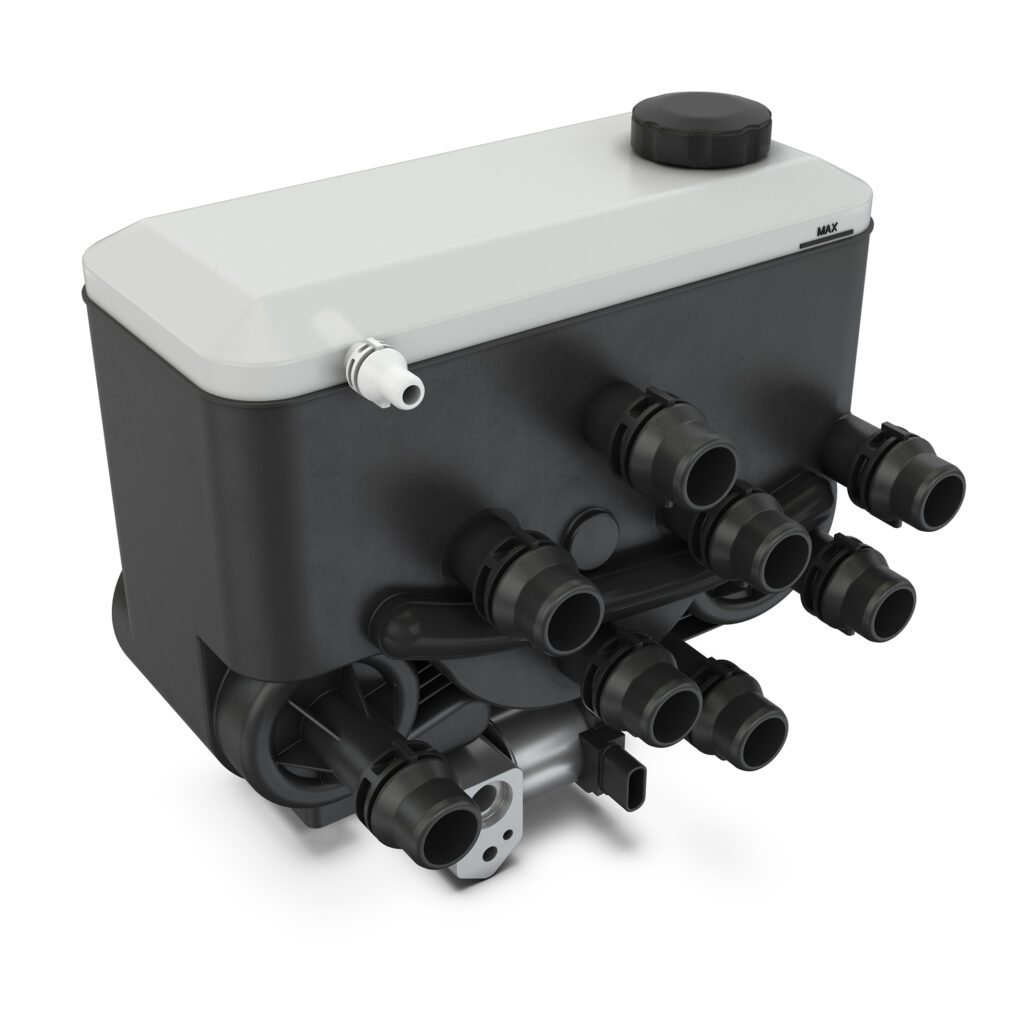Thermal management market hots up
- PostedPublished 20 December 2021

New integrated thermal management tech set to boost the capabilities and range of electric vehicles
The Schaeffler Group has showcased a new thermal management system, designed for use in electric vehicles, which reputedly offers significant packaging and efficiency benefits.
As is the case with many existing thermal management systems, the Schaeffler set-up continuously regulates the temperature of the battery, electric motor and power electronics; interior heating and cooling are also managed, making the best use of the energy on hand, to deliver further range improvements.
However, as you can imagine, such systems typically end up being convoluted and bulky. As well as causing packaging, reliability and maintenance problems, additional complication and component count can also reduce efficiency.

To combat this, Schaeffler’s new thermal management system contains two pumps, the control unit for the pumps and required valves, and a refrigeration circuit interface, in one neatly integrated unit.
This, according to the German global automotive and industrial parts group, reduces the required installation space by up to 60 per cent compared to non-integrated systems.
Schaeffler also states that the hydraulically optimised design of the unit allows for “a high degree” of overall efficiency, which contributes to improvements in range.
Keeping electric vehicle (EV) components at their optimum temperature helps ensure the most efficient operation, granting the best possible range, which is vital.
Quickly achieving and maintaining the desired operating temperatures also maximises performance and reliability, which again contributes to bolstering the appeal and viability of EVs.
Unsurprisingly, because of the potential advantages, many companies have been moving towards integrated solutions.

German mechatronics specialist Brose, for example, recently unveiled a similar integrated thermal management system; it manages the heat exchange between all of the components in the vehicle, and its interior, to maximise efficiency without reducing comfort.
“Currently, around a third of motorists worldwide say they are reluctant to buy an electric vehicle because they are concerned the range is too short,” said Raymond Mutz, executive vice president of the Drives division of the Brose Group.
“For this reason, we have expanded our expertise in electric climate compressors to include complete thermal subsystems. This is how we make sure, for example, that waste heat from charging the battery is not lost in winter but used to heat the interior instead.”
This, according to Brose, can extend the range of an EV by up to 15 per cent. More interestingly, however, is the capability of the efficiency improvements to grant the use of smaller, less expensive batteries – which in turn could make electric motoring more accessible and viable for many.
Other benefits include reductions in vehicle assembly time, due to the reduced number of parts and the system’s smaller size, which in turn delivers reduced costs.

Brose can even deliver its system with a hermetically separated and pre-charged refrigerant circuit, which means the manufacturer does not have to deal with the time and costs involved with handling refrigerant on its production lines.
Many of these companies, as the EV market expands, are rapidly expanding their product line-ups to capitalise on the increasing demand for components and assemblies for pure electric vehicles.
Brose, which specialises primarily in door and seat systems, has developed its thermal management unit and a new low-noise radial cooling fan for EVs. Schaeffler, on the other hand, has developed new in-house 800-volt power electronics, as well as myriad drive systems, so it can provide complete pure electric packages.
The financial advantages of doing so are clear; Schaeffler generated sales of €12.6 billion ($A20.3 billion) in 2020 yet, in the first half of 2021, its e-mobility division has already secured orders totalling €2.1 billion ($A3.4 billion) – which means it has already exceeded its target for the year.
Potential captions:
Dr Jochen Schröder, head of Schaeffler’s e-mobility division, expects annual orders to climb to €3 billion ($A4.8 billion) in 2022
Brose says its integrated thermal management systems can use natural refrigerants such as propane, which will contribute to improvements in sustainability
Powertrain companies such as Dana Incorporated, based in America, now offer an extensive array of EV-specific technologies
- CategoriesIn SightGlass
- TagsSightglass News Issue 25

